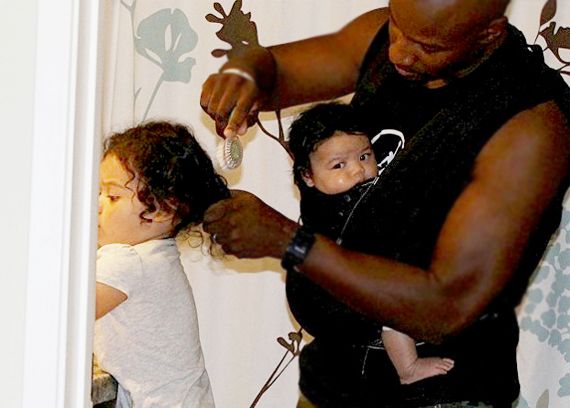
Deciding to start a family is a momentous choice that holds great importance in a person’s life. It encompasses a range of factors that have a profound effect on various aspects of life. Realizing when you’re prepared to embark on this journey necessitates self-reflection, careful preparation, and open discussions. This comprehensive guide will provide you with valuable insights to help you assess your readiness to start a family.
1. Being Prepared Emotionally
One of the initial indications that you might be prepared to embark on the journey of starting a family is a feeling of emotional equilibrium. Having a strong foundation helps you cope with life’s challenges, even if you’re not a perfect person or immune to stress. Being emotionally prepared includes:
- Resilience: is the capacity to recover from setbacks and confront challenges with determination.
- Resilience: Recognizing that raising children can be challenging at times and being ready to navigate through difficulties with a positive mindset.
- Self-awareness: Understanding your emotional triggers and learning how to effectively manage them.
2. Passion for Nurturing

Having a sincere intention to nurture and care for a child is another sign of being prepared. This aspiration often includes:
- Envisioning Parenthood: often contemplating the experience of raising a child and feeling a sense of anticipation for the future.
- Appreciating Quality Time with Children: Discovering the happiness that comes from cherishing moments spent with children, whether they are your nieces, nephews, or friends’ kids.
- Caring and Understanding: Possessing a profound understanding and care for others, which are essential qualities for effective parenting,.
3. Maintaining a Healthy Relationship
Building a family necessitates a solid, dependable partnership. It’s crucial to make sure that your relationship with your partner is established on a strong basis. Important factors to take into account are:
- Open and Honest Communication: Having the ability to openly and honestly discuss your hopes, fears, and expectations when it comes to parenthood.
- Conflict Resolution: Demonstrating the skill of resolving conflicts in a constructive manner without resorting to blame or hostility.
- Common Ground: Finding agreement on fundamental values and approaches to parenting, including discipline, education, and religious beliefs.
4. Shared Longing for Children

It’s important for both partners to have a shared desire to have children. Here are some things that are included:
- Agreement on Timing: Finding common ground and being in sync regarding when to start trying for a baby.
- Strong Alliance: Showing a willingness to stand by each other’s side during the emotional and physical hurdles of pregnancy, childbirth, and parenting.
5. Financial Preparedness
Raising a child requires a considerable amount of financial dedication, starting from the early stages of pregnancy all the way through their education and beyond. Establishing a solid financial foundation is a crucial aspect of assessing preparedness. Think about:
- Financial Security: Ensuring a steady and dependable stream of income to provide for a growing family.
- Financial Preparedness: Creating a safety net to handle unexpected childcare expenses and emergencies.
- Debt Management: Effectively handling and strategizing to eliminate current debts.
6. Managing Finances for a Family

It is crucial to create a budget that takes into consideration the expenses associated with raising a child. Here are some things that are included:
- Healthcare Costs: Strategizing for medical expenses, such as prenatal care, childbirth, pediatric visits, and health insurance.
- Childcare and Education: Taking into account the expenses associated with childcare, education, extracurricular activities, and saving for college.
- Daily Expenses: Managing your budget for essential items like groceries, clothing, and housing.
7. Lifestyle Considerations
Considering your work-life balance is essential when preparing to start a family. Take a moment to reflect on whether your current job and work schedule allow for:
- Parental Leave: Familiarizing yourself with your employer’s policies on maternity and paternity leave and making appropriate plans.
- Work-Life Balance: Exploring options for flexible working hours or remote work to accommodate childcare needs.
- Effective time management: balance your parenting duties with your professional responsibilities to ensure you can give both the attention they deserve.
8. Health and Wellness

Physical and mental well-being are crucial factors in determining your preparedness to begin a family. Take care of your well-being by:
- Routine Health Examinations: Making sure to schedule and attend regular health check-ups to address any potential medical concerns.
- Living a Healthy Lifestyle: Emphasizing the importance of a well-rounded diet, consistent physical activity, and sufficient rest for overall well-being.
- Self-Care: Prioritizing your mental well-being through stress management, therapy, and self-care practices.
9. Practical Considerations
Creating a suitable living environment is essential for raising a child. Evaluate your current living arrangements and make any necessary changes, such as:
- Space: Making sure there is sufficient room for a nursery or child’s bedroom.
- Safety: Ensure the security of your home for your little ones by properly securing furniture, setting up safety gates, and eliminating any potential hazards.
- Neighborhood: Residing in a secure and welcoming neighborhood that caters to families, offering excellent educational institutions, recreational areas, and top-notch healthcare facilities.
10. Customer Support

Having a strong support system is essential for new parents. Some examples of what can be included are:
- Family and Friends: Depending on loved ones for emotional support, guidance, and occasional help with taking care of children.
- Community Resources: Discovering and utilizing the various resources available in your community, including parenting groups, childcare services, and healthcare providers.
- Seeking Professional Assistance: It is important to be open to seeking professional assistance when necessary, such as hiring a nanny or utilizing counseling services.
Evaluating Your Preparedness: A Checklist
Consider this checklist to help you determine if you’re ready to start a family:
1. Emotional Readiness: Are you confident in your emotional stability and resilience?
- Are you genuinely passionate about nurturing and caring for a child?
- Do you possess qualities such as patience and empathy?
2. Relationship Stability: Do you have a solid and secure relationship with your partner?
- Are you skilled in effective communication and constructive conflict resolution?
- Is there a shared desire for children between you and your partner?
3. Financial Preparedness: Are you financially stable with a steady income and savings?
- Have you considered the financial aspects of raising a child?
- Are you effectively managing your debts?
4. Lifestyle Considerations: Is your work-life balance in check?
- How is your overall well-being, both physically and mentally?
- Is your living environment conducive to raising a child?
5. Support System: Is there a strong network of support available to you, including family, friends, and community resources?
- Would you consider reaching out to a professional if necessary?
6. Long-term Planning: How does starting a family fit into your long-term vision and ambitions?
- Have you thought about the lasting impact and principles you wish to instill in your children?
Final Thoughts
Deciding to start a family is a momentous and intimate choice that necessitates thoughtful contemplation of numerous factors. Evaluating your emotional readiness, the stability of your relationship, your financial preparedness, lifestyle considerations, and the strength of your support system can assist you in determining if you are prepared to take this significant step. Keep in mind that there is no universal solution, and each person’s path to becoming a parent is one-of-a-kind. By considering these factors and engaging in sincere and transparent discussions with your partner, you can arrive at a well-informed choice that resonates with you.